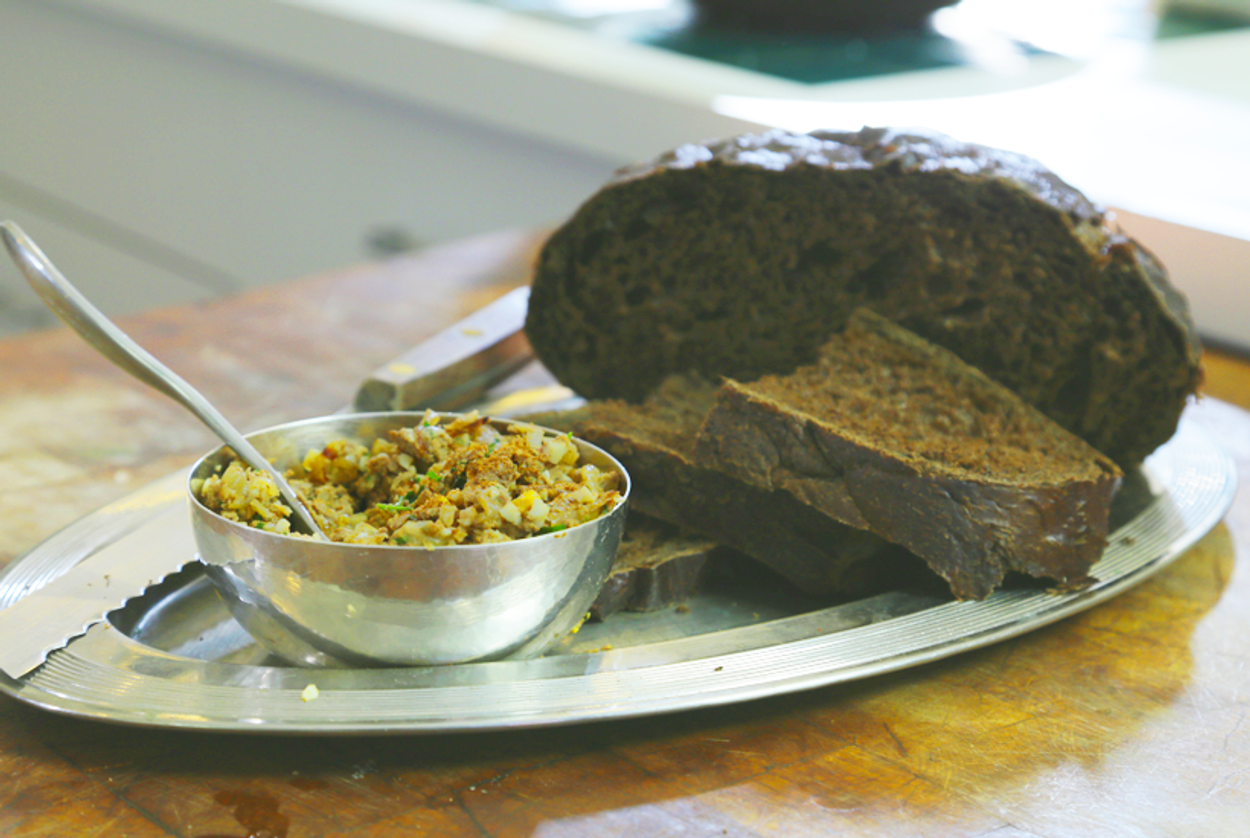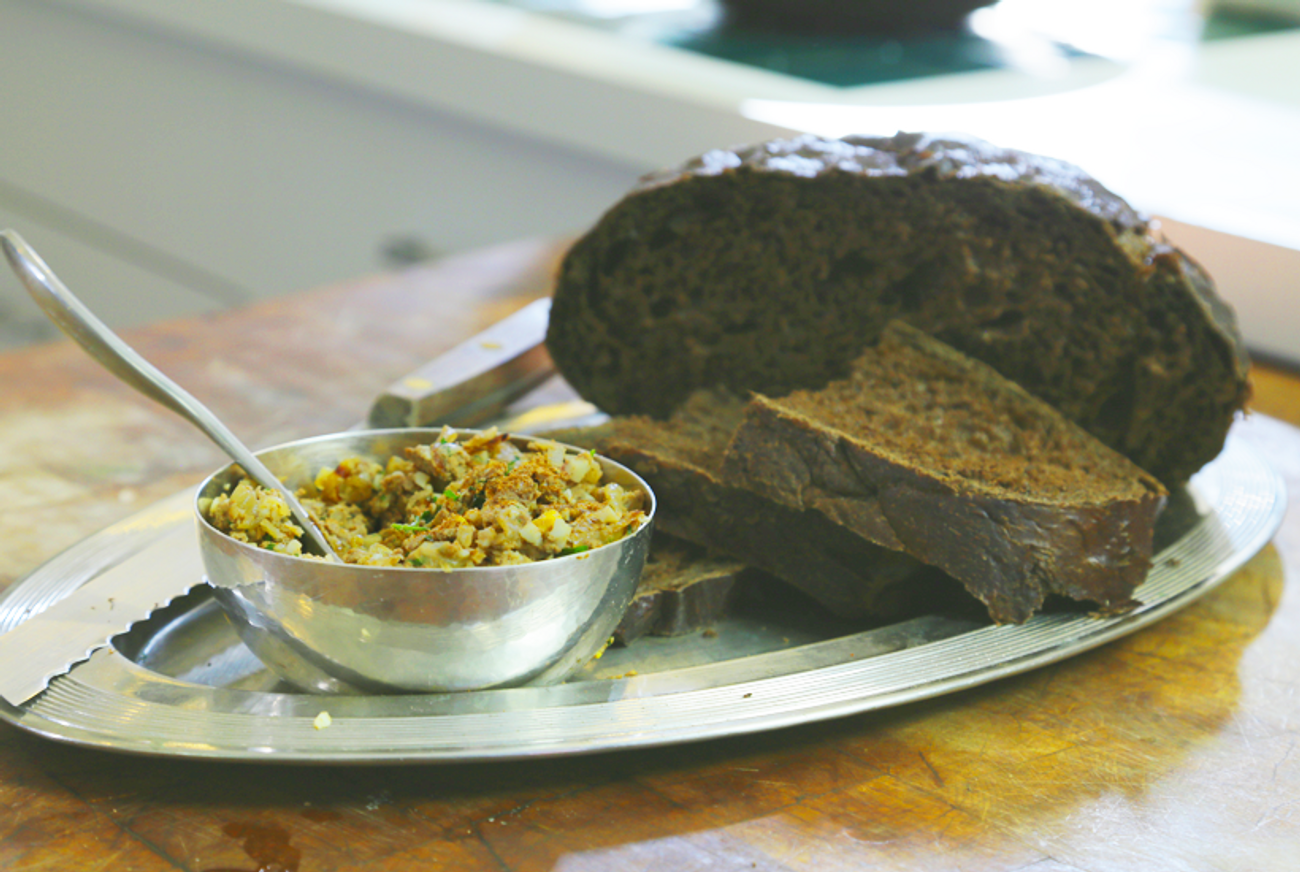How To Make the Ultimate Chopped Liver
Grab the schmaltz, and don’t skimp on the onions when you’re making this uniquely Jewish dish




Chopped liver has come to mean second best (“What am I, chopped liver?”). But this appetizer doesn’t have to be second best. As a rabbi once told me, gehakte leber is perhaps the only uniquely Jewish dish.
Chopped liver originated in Alsace Lorraine, known in the 11th century as Ashkenaz. There, for the first time, Jews migrating north from the warmer climates of the olive oil-rich Mediterranean learned to use schmaltz—rendered fat from the geese in that part of France. For the Sabbath, they wanted to eat a delicacy made from liver, an organ of the chicken known since ancient times to have so much blood in it that it was thought to contain the soul of man. Before observant Jews could eat liver the blood had to be removed, because blood means life, so they put tiny slits in the meat and broiled it to remove the blood before serving. Rendered fat (in this case, chicken fat) lubricated the liver, onions (cooked or raw) sweetened it, and hard-boiled eggs lightened the dish. While French Jews often turned their chopped liver into a kind of pâté (see my book Quiches, Kugels, and Couscous: My Search for Jewish Cooking in France), Jews who migrated to Eastern Europe enjoyed it in its original chopped form, and that’s what they brought to America when they immigrated.
You know a dish is enjoying a renaissance when “mock” or “faux” versions appear. But to me, mock chopped liver, made from mushrooms, green beans, or even lentils, is still second best to the real thing. This version (recipe here), a favorite at my Hanukkah table or any celebratory meal, is a variation of a delicious chopped liver from Evan Bloom and Leo Beckerman of Wise Sons Deli in San Francisco. (I have added hard-boiled eggs and even more onions.) Today, when chopped liver is too often made from beef liver with its more pronounced flavor, Evan and Leo’s chicken liver version, loaded with caramelized onions, is a treat. And please, try it with the schmaltz—it tastes better!
Joan Nathan is Tablet Magazine’s food columnist and the author of 10 cookbooks including King Solomon’s Table: a Culinary Exploration of Jewish Cooking from Around the World.